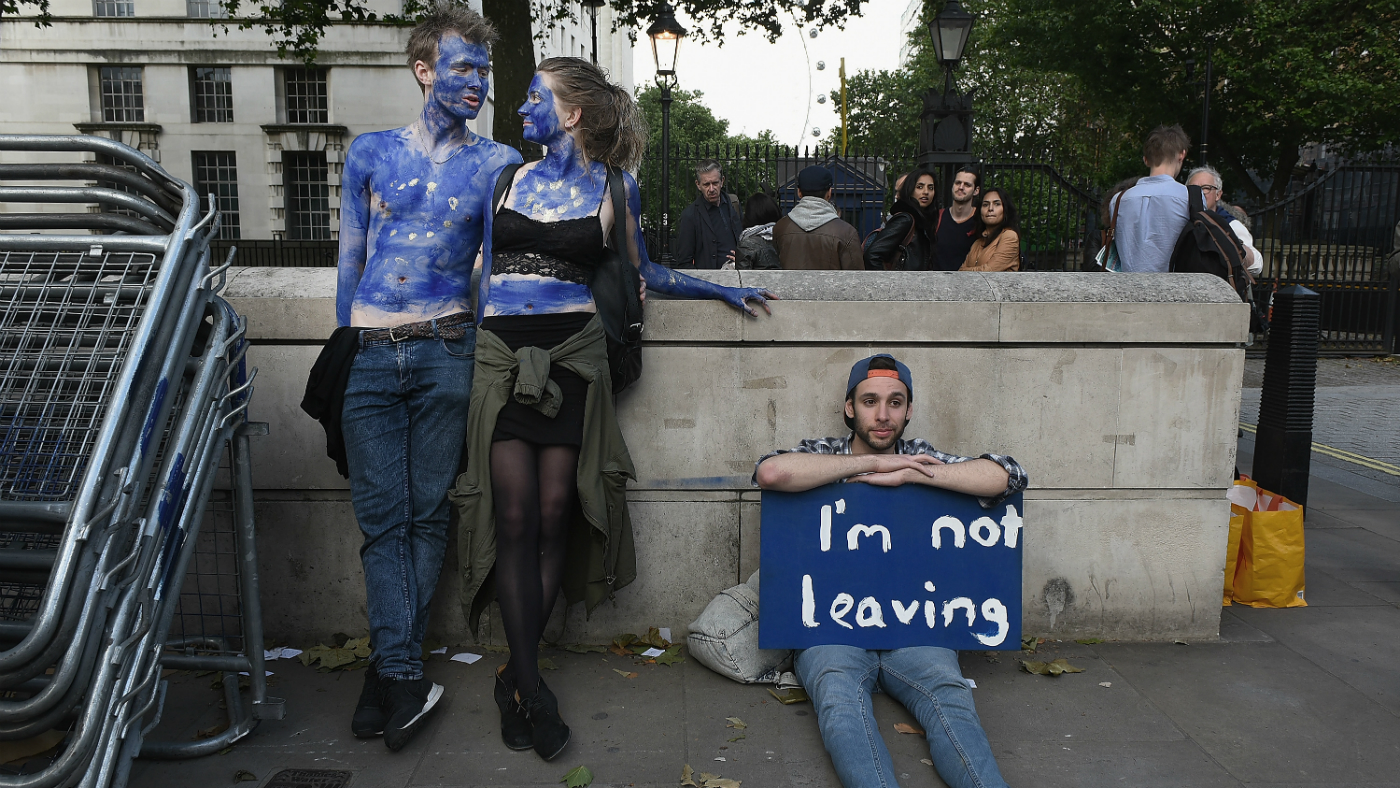Instant Opinion: Remainers fighting ‘long-lost war’
Your guide to the best columns and commentary on Thursday 1 October

A free daily email with the biggest news stories of the day – and the best features from TheWeek.com
You are now subscribed
Your newsletter sign-up was successful
The Week’s daily round-up highlights the five best opinion pieces from across the British and international media, with excerpts from each.
1. Tom Harris in The Telegraph
on empty legal challenges
The Week
Escape your echo chamber. Get the facts behind the news, plus analysis from multiple perspectives.

Sign up for The Week's Free Newsletters
From our morning news briefing to a weekly Good News Newsletter, get the best of The Week delivered directly to your inbox.
From our morning news briefing to a weekly Good News Newsletter, get the best of The Week delivered directly to your inbox.
Brussels’ lawsuit will not win Remainers their long-lost war
“The danger is that this latest fight between the commission and the government will be used by Remainers, that they will use it as an excuse to emerge from the jungle terrain to which they retreated in January and seek to use it, not to secure victory in their long-lost war, but to establish some sort of ‘I told you so bridgehead upon which to build a long-term fight back to re-join the EU. All the old arguments – which were nonsense then and are nonsense now – about the undermining of the Good Friday Agreement are being dusted down and redeployed. ‘Brexiters don’t care if they force the IRA to return to violence’ is basically their case and it is as dangerous and dishonest as it is mind-bogglingly stupid. But look! Over the hill to the rescue rides Ursula ‘Nowhere else’ von der Leyen, who will frustrate and humiliate this nasty government of Brexiters by… well, by doing what, exactly?”
2. Iain Martin in The Times
on the rise of Sunak
A free daily email with the biggest news stories of the day – and the best features from TheWeek.com
Tories are thinking about life after Boris Johnson
“The words ‘deputy prime minister’ are being muttered by ministers and I hear several factions are preparing to demand someone is appointed to help him relaunch and reshuffle the government. Even that will become a proxy fight, or preliminary skirmish, over the party’s future after Boris. If Jeremy Hunt, the former health secretary, got the job it would be a direct challenge to Michael Gove. If Gove became deputy PM — he is already doing quite a bit of that job without the title — his colleagues would fear it meant even more power for Dominic Cummings, the senior No 10 adviser and friend of Gove. Nothing can move without the say-so of the chancellor Rishi Sunak, the leader-in-waiting who is (for now) unsackable. Only eight months ago he was installed by a No 10 that assumed he would be pliable. Now he is the number one threat.”
3. Amra Sabic-El-Rayess in Al Jazeera
on dark parallels
Today’s America reminds me of 1990s Bosnia and Herzegovina
“Slobodan Milosevic, later dubbed the ‘Butcher of Balkans’ for his genocide against Bosnian Muslims, brilliantly leveraged this shared Islamophobia to justify killing ordinary people like me. In 1989, when he prepped Serbs for the wars he was going to initiate, he delivered an infamous speech calling for Serbs to unify in battle to protect their Serb identity and white, Christian Europe. The time and place for his speech were carefully curated – it was delivered at the main ceremony marking the 600th anniversary of the battle of Kosovo, in which the Muslim Ottomans defeated the Serbs and shortly thereafter conquered Serbian lands. The commemoration, which was taking place at an historical battle site, provided Milosevic with imagery that would help Serbs morally justify the mass killings of Muslims. Like those who partook in the executions of ordinary Muslims in Bosnia, white supremacists in America today look at Muslims – along with Black people, immigrants, gays, Jews and all other minorities – through the imagery of the Crusades and see all minorities as an existential threat to their ethnic purity.”
4. Rajat Khosla in The Guardian
on the death of principles
By kicking Amnesty out, India is betraying its founding ideals
“India once prided itself on standing apart from the rest of the region, avowing a long tradition of tolerance and pluralism. This was a tradition not inspired by the west, but in defiance of it. It was evident in the freedom struggle against the British, when Indian activists like Mehta were imprisoned for their peaceful beliefs under draconian laws and protests were crushed with violent impunity. And it was a tradition that gave birth to a raucous free press and countless social movements, including trade unions, women’s rights groups, indigenous and Dalit rights activists, all vigorously holding the Indian state to account. These traditions now lie imperilled.”
5. Seun Matiluko in The Independent
on gaps in history
Early 20th-century black British history is as important as Windrush. These are the three lessons whitewashing has denied us
“For many of us who grew up and are growing up without knowledge of black British history, Wikipedia, non-fiction books and online articles have become ways to fill in gaps of information. As a result, many more people are now aware of the history behind the Notting Hill Carnival and the Bristol bus boycott. However, many are still as of yet uninitiated in early 20th-century black British history. The history not of post-war immigrants, but of British imperial subjects migrating to the mainland some decades before.”